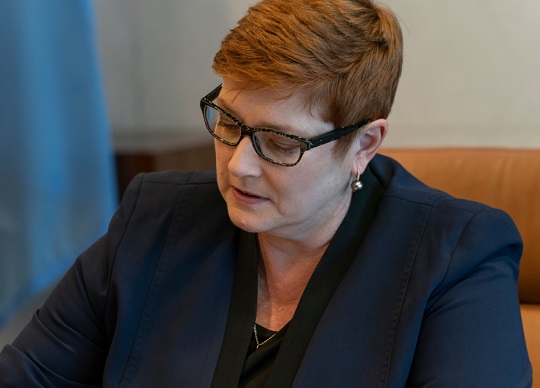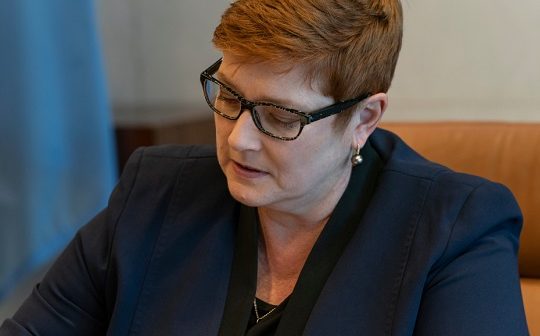
by Mikayla Fanto, Staff Contributor
On April 21, Foreign Minister Marise Payne announced the successful projects in Round 1 of the Australia-India Cyber and Critical Technology Partnership (AICCTP).
The three cyber projects with India were outlined on Wednesday as Payne launched the International Cyber and Critical Technology Engagement Strategy.
According to the announcement, the main goal for this strategy is to provide a safe, secure and prosperous Australia, Indo-Pacific and the world.
Ms Payne says the strategy focuses on the prioritisation and enhancement of our cyber and critical tech diplomacy.
She says the governments will work on the strategy through bilateral partnerships, through groupings such as the Quad, the ASEAN Regional Forum, the Pacific Islands Forum.
Through this grant, The Centre for International Security Studies (CISS) received $800,000 over two years from The Department of Foreign Affairs and Trade (DFAT) following the ethical use of quantum technologies.
This project focuses on the development of first world quantum accords to inform the international governance of quantum technologies.
Other successful projects include addressing privacy and security challenges in next-generation telecommunications networks at The School of Computer Science at the University of Sydney.
This project is in partnership with the Indian Institute of Technology Madras, Reliance Jio and the University of New South Wales.
The Next Generation Telecommunications Networks project will study the growth in wireless network usage and IoT systems.
The research will focus on issues that arise from wireless tracking systems based on several experiments in Australia and India as well as working to strengthen data protection regimes globally.
The third cyber project awarded funding was the Operationalising ethical frameworks in critical tech industries at La Trobe University and the Indian Institute of Technology Kanpur.
The project intends to develop knowledge in artificial intelligence and cyber and critical technology, ethics and sustainability.
They expect to review the ethical practices of companies and include recommendations as to revised codes and practices of ethics.
Ms Payne says the work will be global through the United Nations.
She says they will support partners in their region to “build capacity for cyber and critical technology resilience”.
The grants program enhances the collaboration with Australia and India on cyber and critical technology issues to support Australia and India’s shared vision of an open, free, rules-based Indo-Pacific region.
The minister says the first round of prioritised proposals focused on strengthening and understanding ethical frameworks and encouraging the development of technical standards on critical technologies.
She says the program received over 50 applications, and the grants have been awarded to three projects.
Ms Payne says she is excited to see the outcomes of this important work.
The three pillars, values, security and prosperity will guide Australia’s international engagement across cyber and critical technology issues, Minister Payne says.
She says the guidance of the pillars will embrace opportunities for innovation while avoiding and alleviating the risks.
Minister Payne says both Australia and India are essential players in the global development of critical and emerging technologies such as Artificial Intelligence (AI), next-generation telecommunications (5G/6G), Internet of Things (IoT), quantum computing, synthetic biology, blockchain and big data.





